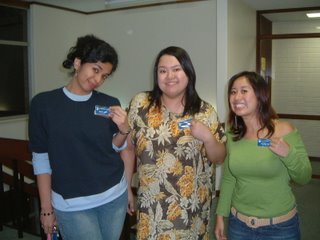Phelicia, you are Balanced-brained, which means that you rely equally on both the left and right hemispheres of your brain.
You have a balanced brain — able to draw on the strengths of both the right and left hemispheres depending on context. Typically, people with balanced right and left hemispheres are very comfortable with switching between local and global perspectives — that is, paying attention to both small details and larger issues when the circumstance indicates. That means they can identify elements that make up an image or situation and also attend to the larger, more holistic pattern or unified whole that those details comprise.
You are able to capitalize on the left hemisphere's skills in verbal communication as well on the right hemisphere's focus on patterns and association making. This rare combination makes you a very creative and flexible thinker.
Depending on the situation, you may rely on one hemisphere or the other. Some situations may lend themselves to using your right brain's creativity and flexibility while other situations may call for a more structured approach as dictated by your left brain.
That's how your brain processes information. And while your dominant brain hemisphere certainly contributes to the way you process information, there is also a style of learning, unrelated to your dominant hemisphere, that determines the ways in which you are best able to pick up information. When you're learning something new, your dominant brain hemisphere will want to take over. But there are times when the information being presented is not well suited to your dominant hemisphere's abilities.
That's why, in addition to your hemispheric dominance, you also have a style of learning that is dominant for you. Whether you know it or not, you are naturally predisposed to learning things visually, aurally, or through a combination of the two.
Your test results show that you are an auditory learner.
Other balanced-brained people who are auditory learners are pop singer Madonna, classical composer Wolfgang Amadeus Mozart, and comedian and actor Robin Williams. But before delving deeper into how you learn, you should get the basics of your brain's physiology.











































